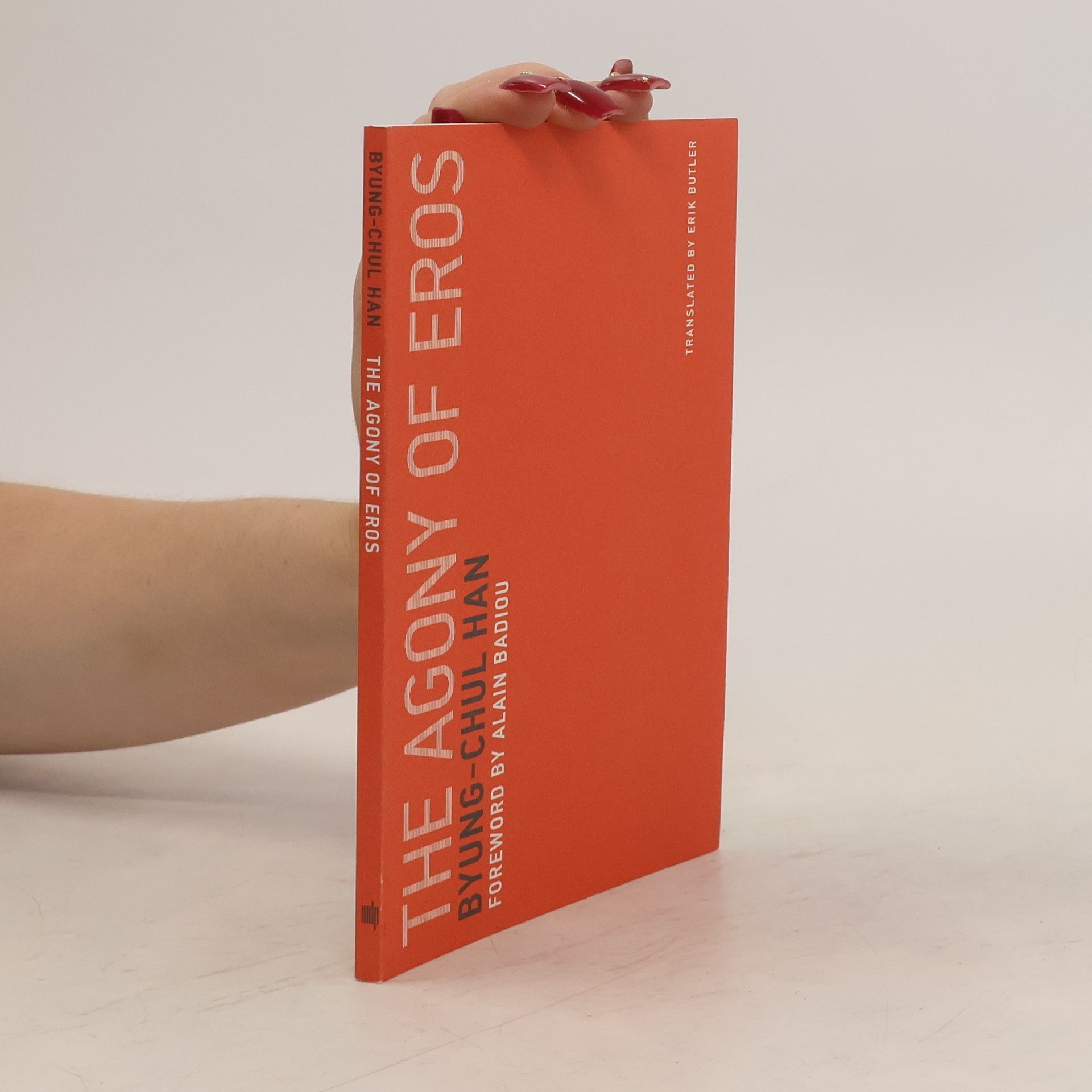Topology of violence
- 168 pages
- 6 hours of reading
This series of essays draws deeply from philosophy and theory to dissect a wide array of cultural topics. It examines contemporary society through the lens of the digital, the erotic, and structures of power. The provocative texts offer fresh perspectives on literature, business writing, and complex human passions. It is an exploration of timely truths in an often-untimely manner.






Byung-Chul Han, a prominent European philosopher, explores the contemporary threats to love and desire in this bestselling work. He argues that true love requires the courage to embrace self-negation to discover the Other, a concept increasingly endangered by today's fetishized individualism and technology-driven social interactions. In a narcissistic society, love and desire are often sought within the confines of the self. Han examines various cultural references, including Lars von Trier's *Melancholia*, Wagner's *Tristan und Isolde*, and *Fifty Shades of Grey*, while critiquing Michel Foucault's views on power. He addresses the pornographication of society, arguing that it profanes Eros, and discusses how capitalism erases essential differences. Furthermore, he reflects on the politics of Eros in a burnout society, asserting that a lack of love equates to a lack of thought. This concise yet profound essay contributes significantly to Han's critique of modern society, offering a compelling intellectual experience. It invites readers to engage in the vital struggle for love's reinvention, echoing Rimbaud's desire for a renewed understanding of love.
Zur Poetik des Nationalsozialismus
Anfang 2016 wird Adolf Hitlers Mein Kampf im Rahmen einer wissenschaftlich kommentierten Edition zum ersten Mal seit Kriegsende wieder in Deutschland zu kaufen sein. Die Veröffentlichung bietet Anlass, aufs Neue den furchtbaren Erfolg der ›Bibel der Nazis‹ zu ergründen. Es ist nämlich keinesfalls klar, warum das politisch wirre, peinlich geifernde und eigentlich nicht ernstzunehmende Machwerk eine solche Wirkung erzielen konnte. Angesichts offensichtlicher inhaltlicher Absurditäten, die auch schon zu Zeiten der Originalveröffentlichung bemerkt wurden, nähert sich Albrecht Koschorke dem Buch mit literaturwissenschaftlichem Instrumentarium. Welche Erzählstrategien hat Hitler benutzt, welche Lesepraxis hat er angeregt? Und was hat es damit auf sich, dass das Buch trotz enormer Verbreitung, kaum gelesen wurde? Der literaturwissenschaftliche Blick enthüllt, dass es Hitler entgegen allem Anschein nicht in erster Linie um die fanatische Verbreitung einer Wahrheit ging, sondern darum, Anhänger wie Gegner zu einer Reaktion zu zwingen.
Error: You exceeded your current quota, please check your plan and billing details. For more information on this error, read the docs: https://platform.openai.com/docs/guides/error-codes/api-errors.
A philosopher considers entertainment, in all its totalizing variety- infotainment, edutainment, servotainment-and traces the notion through Kant, Zen Buddhism, Heidegger, Kafka, and Rauschenberg.
Corporations increasingly recognize the power of storytelling, with companies like Microsoft employing dedicated storytellers and others like IBM and Coca-Cola utilizing narrative techniques. Steve Jobs exemplified this approach, making narrative a vital communication tool for organizations. In 'Portrait of the Manager as a Young Author', Philipp Schoenthaler delves into the surprising connection between business and storytelling. The apparent contradiction lies in the notion that, as philosopher Hans Blumenberg suggests, stories are meant to pass the time, yet managers often appear pressed for time. Nevertheless, Schoenthaler highlights how narratives can simplify complexity, especially when digital information overwhelms our cognitive capacity. Both words and numbers serve as instruments of truth, revealing their interdependence within management. This raises questions about the implications of ubiquitous narratives and the commercialization of storytelling on literature. Schoenthaler examines the interplay between economics and literature through the lens of storytelling, presenting a unique perspective as an award-winning literary author. This work contrasts with typical business-focused storytelling literature by addressing how storytelling influences business and vice versa. Translated by Amanda DeMarco.